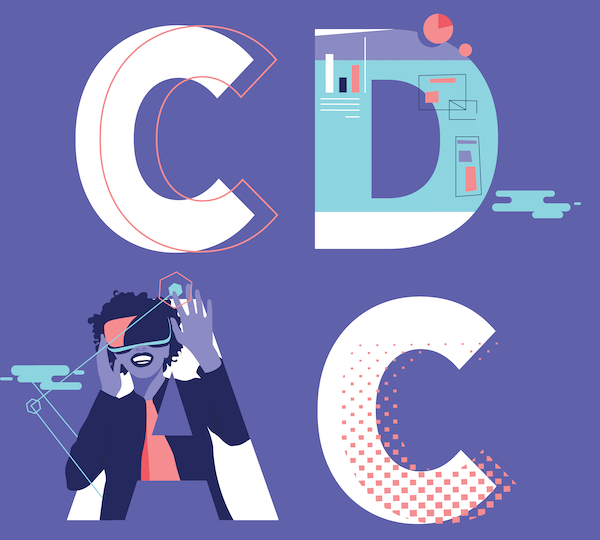2020 CDAC Summer Lab Kicks Off with 38 Student Researchers

Each year, the Center for Data and Computing Summer Lab provides dozens of undergraduate and high school students with a paid, in-person opportunity to experience immersive research in data science and other computational approaches. This year…the “in-person” part didn’t seem so wise. But despite its remote format, the 2020 Summer Lab will be the biggest edition yet, with 38 students from around the world working as research assistants with 29 faculty or staff mentors from UChicago CS and other units, studying applied machine learning and AI, human-computer interaction, computational social science, systems, and much more.
Over the next ten weeks, Summer Lab students will contribute to innovative research that bridges data science and computational approaches with applications in physics, archeology, public policy, and many other fields. And they’ll do it from their homes around the United States, Europe, and Asia, meeting virtually with their mentors and peers through a variety of channels and events.
“What the program really offers is exposure to cutting-edge, interdisciplinary data and computational science — the entire lifecycle of data science,” said Kyle Chard, Summer Lab program director and research assistant professor with the University of Chicago Department of Computer Science. “Often, this is the first chance these students have to conduct research, and we focus on making sure that they see the opportunities and the excitement of science.”
This week, the first half of the student cohort kicked off their summer with an online orientation, the first of many remote events that will preserve the important community aspect of the program. Students will engage in workshops, weekly panels and talks, and even trivia nights and scavenger hunts.
“The real success that we enjoyed last year was seeing students really come into their own through research and participating in the cohort,” said Katherine Rosengarten, CDAC administrative specialist and co-organizer of Summer Lab. “The cohort isn’t something that you can make happen; you can only help build and foster it, and we do that through a balance of exciting, rigorous research work and community-based fun.”
For the first time, the students will also participate in an “on-ramp” technical workshop, presented in partnership with The Carpentries, and communicate via a program Slack channel, sharing knowledge and experiences across multiple time zones.
“We’ve learned in the past that the students learn as much from their peers as they do from their mentors, so I think that’s a particularly strong part of this program,” Chard said.
This year’s class of 38 builds upon last year’s cohort of 28 students in the inaugural year of the CDAC Summer Lab (the program succeeded the Computation Institute summer research program, started in 2012). Like last year, the group is over half women and minorities underrepresented in computer science — which the team credited to expanded efforts to reach a broad range of students and schools and encourage all to apply, regardless of prior research experience. The outreach was a success, generating more than 300 applications, three times higher than 2019.
The range of project topics available to this year’s students also doubled from last year, with mentors coming from 13 different departments and centers at the University of Chicago, Argonne National Laboratory, and Fermilab. But even last year’s smaller cohort made significant contributions to science, earning co-authorship on seven papers or posters accepted to major academic conferences and helping develop new research software.
“What I love about the CDAC Summer Lab program is that it’s serious about really supporting and mentoring the next generation of data scientists,” said Julia Koschinsky, executive director of the Center for Spatial Data Science. “We’ve worked with high school and College students who are exploring how they can apply their interests in computer science, physics, and math in a research and job context. By the end of the summer, they helped develop Python packages and AWS tools that will be released through the widely used PySAL library. After the Summer Lab, we continue to support students with recommendation letters and job connections and are proud that they just got accepted to Harvard’s CS program and to Princeton and others are now applying to internships at NASA and IBM. They’re on their way!”
“We’ve seen students come out of the program and co-author papers, or work on open source tools that are now being used by thousands of people,” Rosengarten said. “In their time in the program, they made friendships, they make connections, some are now working in labs of faculty that they worked with, and they’re starting to claim their own territory as researchers in a way that is not easy to do when you’re a student.”
Meet the 2020 students of the CDAC Summer Lab here, and watch for videos of Summer Lab events on the CDAC YouTube channel.
[Summer Lab logo by Angela Liu.]












